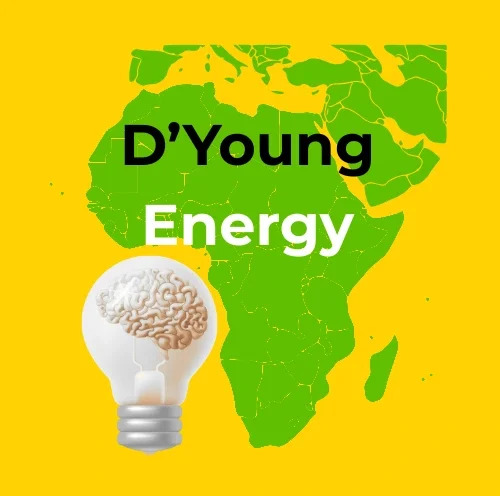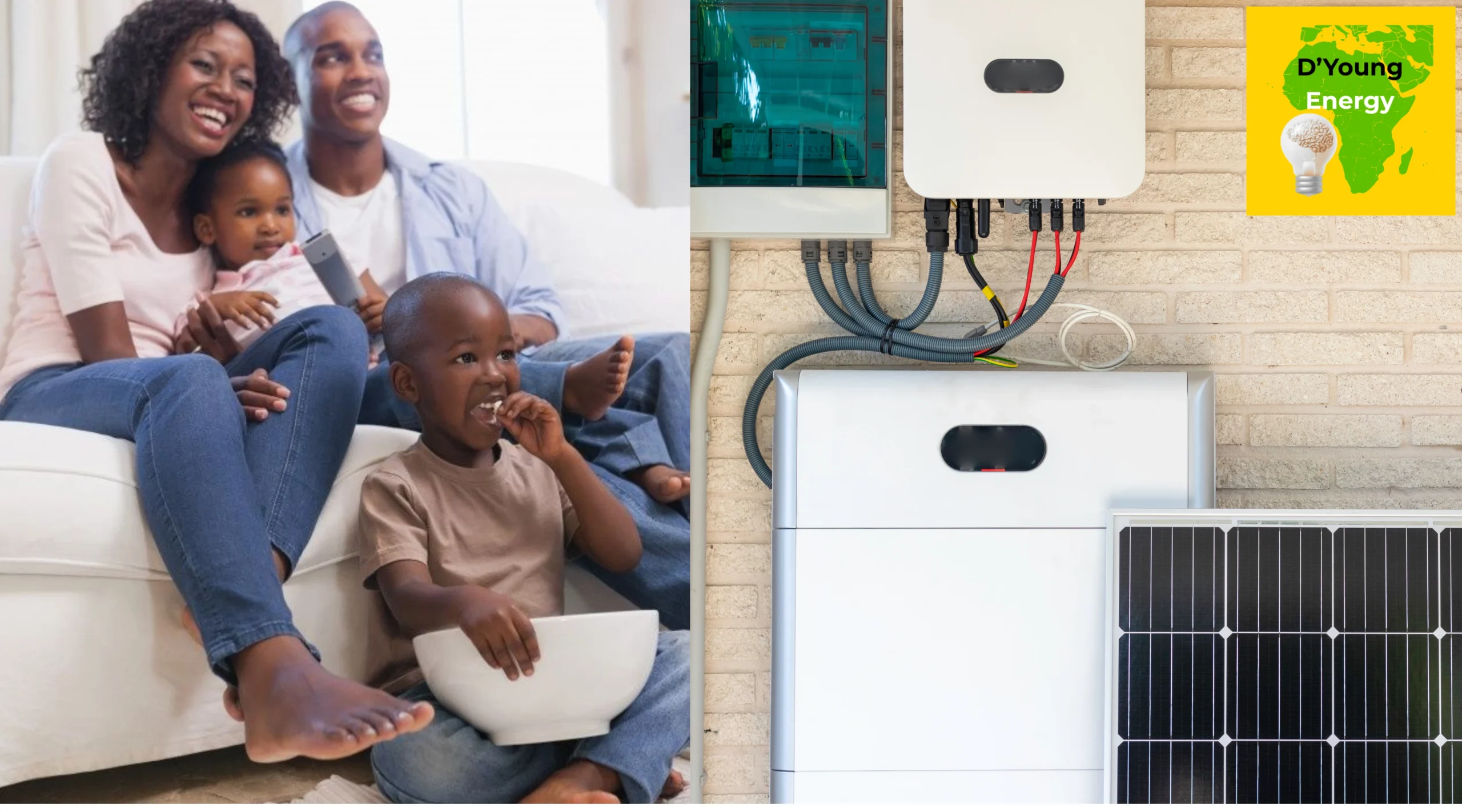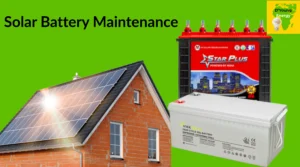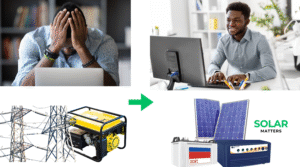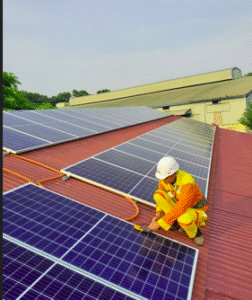If you live in Nigeria, you already know the struggle; constant blackouts, noisy generators, and skyrocketing fuel prices. Families spend huge amounts of money monthly just to keep the lights on. But what if you could enjoy 24-hour electricity without ever worrying about NEPA or fuel again?
That’s the power of solar energy; a clean, silent, and cost-effective solution that lets you take control of your power supply.
However, there’s one part of the solar system that many people don’t pay enough attention to — the best solar battery. It’s the heart of your solar system, storing power from the sun for use at night or during blackouts. Choosing the wrong battery can mean poor performance, short lifespan, and disappointment. But the best solar battery? It can give you years of steady, reliable power and peace of mind. 💡
Why the Best Solar Battery Matter So Much
A solar battery’s job is to store electricity generated by your solar panels during the day and release it when the sun is down. Think of it as your home’s energy bank account; you deposit solar energy during the day and withdraw it when needed.
Without a quality battery, your solar panels are like a tap without a tank — all that power just flows away unused. In Nigeria, where power outages are frequent and nights are long, a good battery is what guarantees you 24-hour power supply.
Common Challenges Nigerians Face with Solar Batteries
Many homeowners in Nigeria rush into solar installations without understanding how batteries work — and that’s where the trouble starts. Here are some of the most common problems:
- Buying fake or low-quality batteries
Cheap batteries flood the market, but most don’t last up to six months. They fail quickly because they can’t handle deep discharges or high loads from appliances like fridges, fans, or ACs. - Wrong battery sizing
Some installers use batteries that are too small for the household’s energy needs. The result? The system runs out of power too fast at night. - Poor maintenance
Over-discharging, overloading, or leaving batteries in hot, poorly ventilated areas shortens their lifespan drastically. - Lack of expert installation
Even the best solar battery won’t perform well if installed incorrectly or combined with the wrong inverter or charge controller.
At D’Young Energy, we’ve seen all these issues — and helped hundreds of families solve them with professional energy audits and the best solar battery systems tailored to their needs.
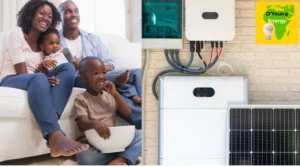
Types of Solar Batteries for Homes in Nigeria
Not all solar batteries are created equal. There are three major types you’ll find on the market today:
1. Lead-Acid Batteries
These are the oldest and most affordable type of solar batteries.
✅ Pros: Cheap, easy to find.
❌ Cons: Require regular maintenance, shorter lifespan (2–4 years), and perform poorly in hot climates.
Best for: Small homes or low-budget backup systems.
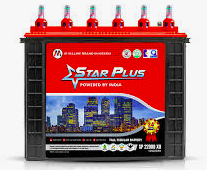
2. Gel Batteries
An improved version of lead-acid batteries — sealed, maintenance-free, and safer.
✅ Pros: Longer life than flooded batteries, no need for water refilling.
❌ Cons: Slightly more expensive, slower charging, not suitable for heavy loads.
Best for: Medium-sized homes or light power users.
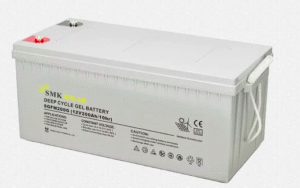
3. Lithium-Ion Batteries (LiFePO4)
The top choice for modern solar systems and Nigerian conditions.
✅ Pros: Long lifespan (8–15 years), fast charging, deep discharge capacity, compact, and maintenance-free.
❌ Cons: Higher upfront cost — but much better long-term value.
Best for: Homes seeking full energy independence and 24-hour power. ⚡
At D’Young Energy, we recommend Lithium-Ion Solar Batteries because they handle Nigeria’s heat, support heavy loads, and give 3× the lifespan of cheaper options.
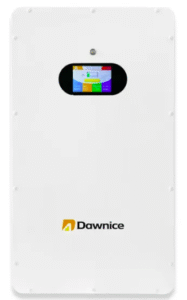
How to Choose the Right Solar Battery for Your Home
Before buying a battery, consider these five important factors:
- Battery Capacity (Ah or kWh)
This determines how long your power will last. Our experts calculate your home’s daily energy consumption to recommend the right capacity. - Depth of Discharge (DoD)
Indicates how much of your battery’s stored power can be used before recharging. Lithium batteries offer 80–100% DoD — meaning you can use nearly all your stored energy. - Cycle Life
This measures how many charge/discharge cycles your battery can handle. Lead-acid batteries may last 1,000–1,500 cycles; lithium batteries can exceed 5,000–6,000. - Efficiency and Temperature Tolerance
In Nigeria’s hot weather, lithium batteries perform best — maintaining stable output even in high heat. - Warranty and Brand Reliability
Always buy from trusted suppliers with warranty support. At D’Young Energy, we partner with top global brands to ensure quality and reliability.
Why Nigerians Should Invest in Quality Solar Batteries
A well-sized solar system with high-quality batteries can reduce a family’s energy costs by up to 70%, while eliminating pollution, generator noise, and fuel stress.
Plus, when you invest in Lithium-Ion batteries, you’re buying 10+ years of reliable power, instead of replacing cheap ones every few months. In the long run, it’s the smarter, more affordable choice.
Why Choose D’Young Energy
At D’Young Energy, we simplify solar adoption for Nigerians. Our services include:
- Energy audits and consultation
- Custom solar system design and installation
- Sale of high-performance Lithium-Ion batteries
- Maintenance, repairs, and performance optimization
We’re not just another solar company — we’re your long-term energy partner helping you transition from generators to clean, reliable solar power.
Choosing the best solar battery isn’t just a technical decision — it’s a lifestyle choice. The right system gives you peace, comfort, and energy freedom while saving money and protecting the planet.
Don’t waste money on fake or short-lived batteries. Let professionals design a system that truly fits your needs and guarantees long-term satisfaction.
Ready to Enjoy 24-Hour Light Without Generators?
Let’s help you choose the perfect solar battery for your home today!
📞 Call/WhatsApp: +234 703 717 9294
